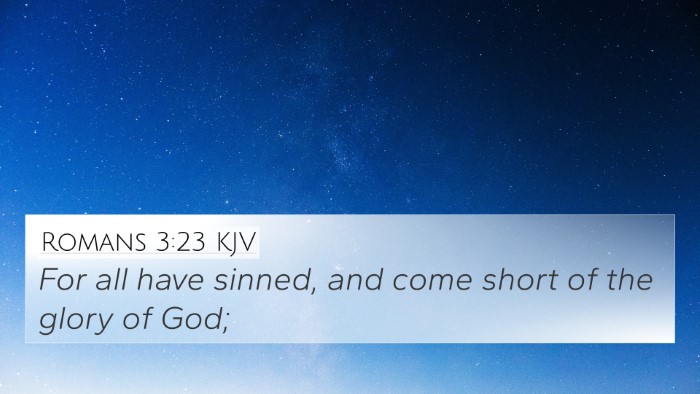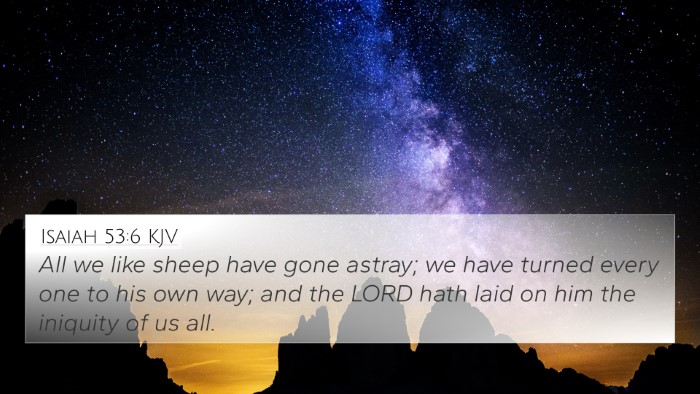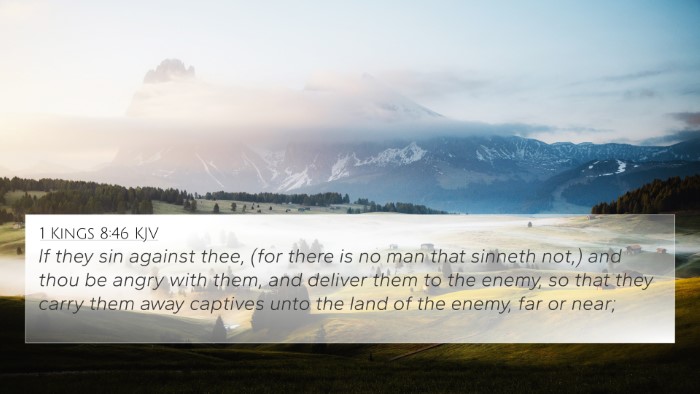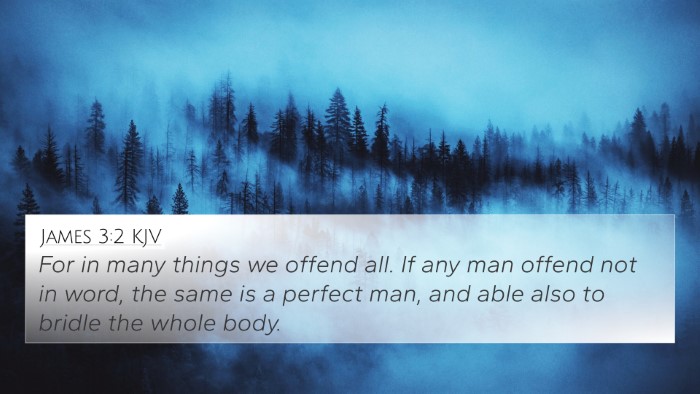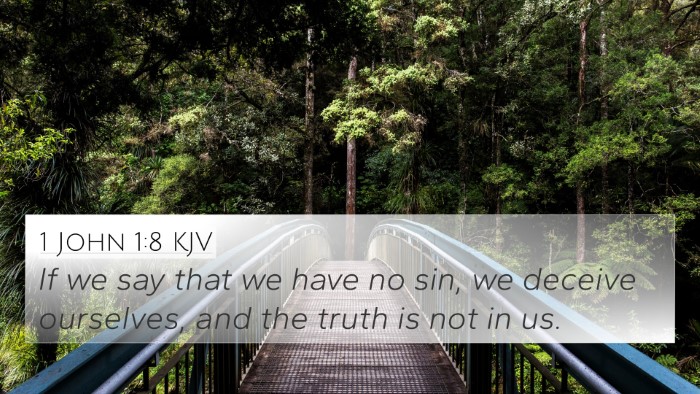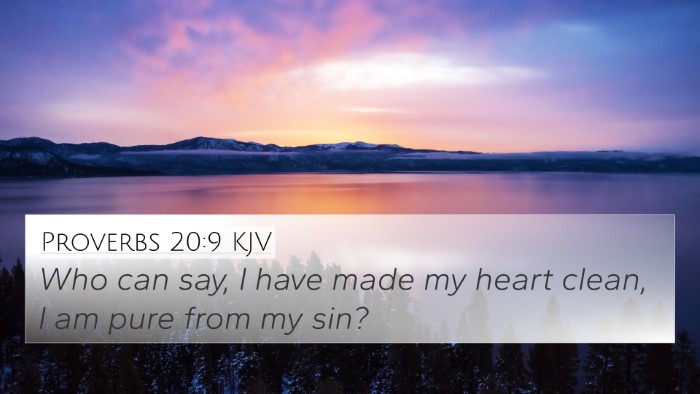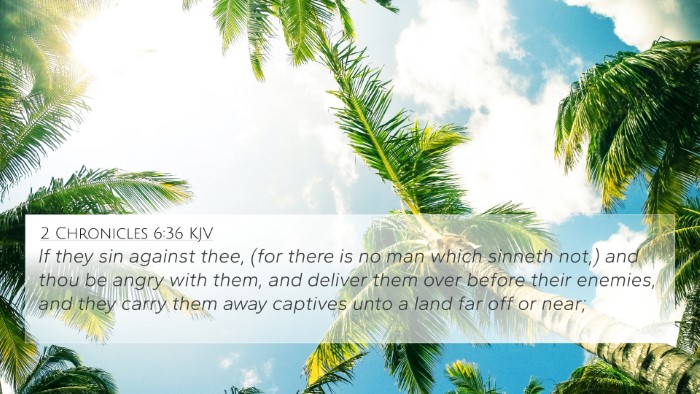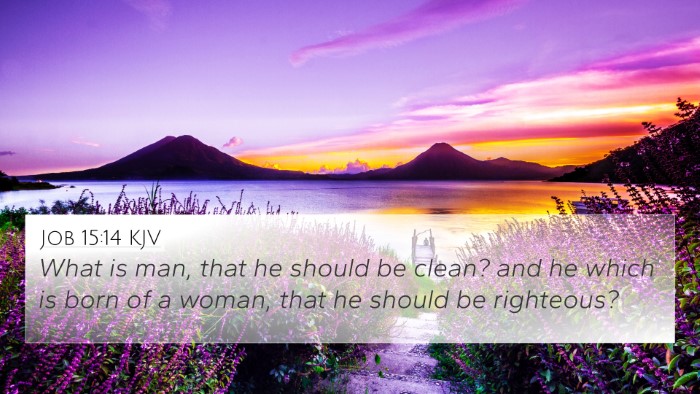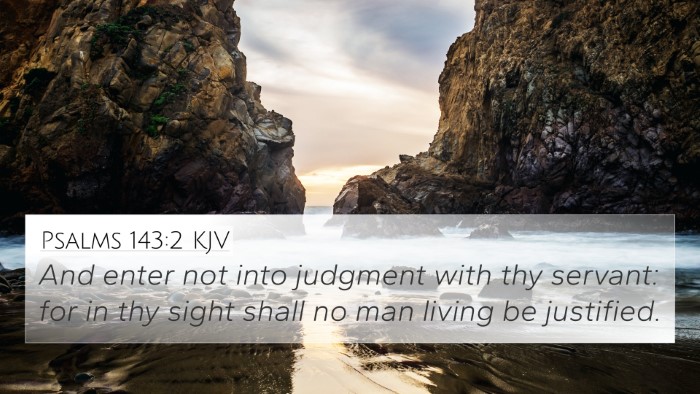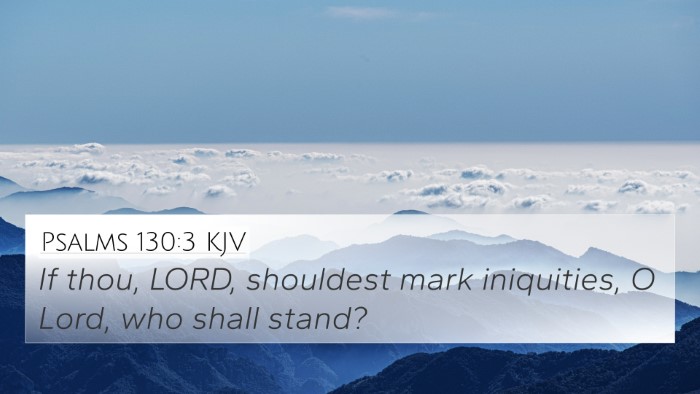Understanding Ecclesiastes 7:20
Ecclesiastes 7:20 states: "For there is not a just man upon earth, that doeth good, and sinneth not." This insightful verse highlights the inherent flaws and shortcomings of humanity, suggesting that all individuals fall into sin at various points throughout their lives. The combined interpretations from revered commentaries provide a deep understanding of this verse.
Combined Insights from Public Domain Commentaries
Drawing on the works of Matthew Henry, Albert Barnes, and Adam Clarke, we can summarize the meanings and implications of this verse:
- Human Fallibility: All humans are imperfect and prone to sin. Matthew Henry emphasizes that even the most righteous among us are unable to live a life devoid of sin.
- Lack of Righteousness: Albert Barnes points out that one cannot find a single person who is entirely just, illustrating the universality of sinfulness and need for grace.
- The Nature of Sin: Adam Clarke notes that this verse underscores the reality that sin is a common experience for all and serves as a reminder of our dependence on divine forgiveness.
- Comparative Perspective: There is significance in comparing this verse to others; it establishes a critical understanding of the state of humanity in biblical context.
- Encouragement for Humility: This verse serves as a call for humility, reminding believers that they cannot stand in judgment over others since everyone is in need of grace.
Cross-References for Deeper Understanding
In connecting this verse to other scriptures, we can identify several biblical texts that reinforce the theme of human sinfulness:
- Romans 3:10-12: "As it is written, There is none righteous, no, not one: There is none that understandeth, there is none that seeketh after God."
- 1 John 1:8: "If we say that we have no sin, we deceive ourselves, and the truth is not in us."
- Psalm 143:2: "And enter not into judgment with thy servant: for in thy sight shall no man living be justified."
- Job 15:14-16: "What is man, that he should be clean? and he which is born of a woman, that he should be righteous? Behold, he putteth no trust in his saints; yea, the heavens are not clean in his sight."
- Isaiah 64:6: "But we are all as an unclean thing, and all our righteousnesses are as filthy rags; and we all do fade as a leaf; and our iniquities, like the wind, have taken us away."
- James 3:2: "For in many things we offend all. If any man offend not in word, the same is a perfect man."
- Galatians 5:17: "For the flesh lusteth against the Spirit, and the Spirit against the flesh: and these are contrary the one to the other: so that ye cannot do the things that ye would."
Thematic Connections and Inter-Biblical Dialogue
This verse serves as a focal point for exploring various theological themes, including:
- The Doctrine of Sin: Understanding the nature of sin and its prevalence in human lives.
- The Need for Redemption: Highlighting the necessity for believers to seek redemption and forgiveness through Christ.
- Humility and Self-Reflection: Encouraging individuals to reflect on their own lives and recognize their need for grace.
- Diversity of Biblical Narratives: Linking this verse with stories in both Testaments that highlight characters grappling with sin.
- Encouragement for Community: Encouraging believers to foster a supportive community recognizing shared struggles.
Comparative Bible Verse Analysis
When performing a comparative analysis of scriptures that discuss sin, believers can benefit from examining:
- Old Testament Reflections: How prophets and psalmists express the universal condition of sin.
- New Testament Teachings: How the teachings of Jesus and the Apostles expand on the ideas presented in Ecclesiastes regarding sin and righteousness.
- Pauline Epistles: Insights into the struggle against sin within the believer’s life as discussed by Paul.
- Connections with Proverbs: Wisdom literature that offers insights and parallels regarding the nature of humanity.
Tools for Cross-Referencing and Study
For further exploration of biblical connections and themes, consider utilizing:
- Bible Concordance: A valuable resource for locating verses and their themes.
- Bible Cross-Reference Guide: Helpful for understanding the links between different scriptures.
- Cross-Reference Bible Study: Methods for studying the relationships between verses effectively.
- Comprehensive Bible Cross-Reference Materials: Resources that compile various scriptures and their interconnections.
Conclusion
Ecclesiastes 7:20 is a profound reminder of the shared human experience of sin, calling for humility and reflection. By linking this verse with others throughout scripture, believers gain a richer understanding of their spiritual journey and the grace offered through faith in Christ.



